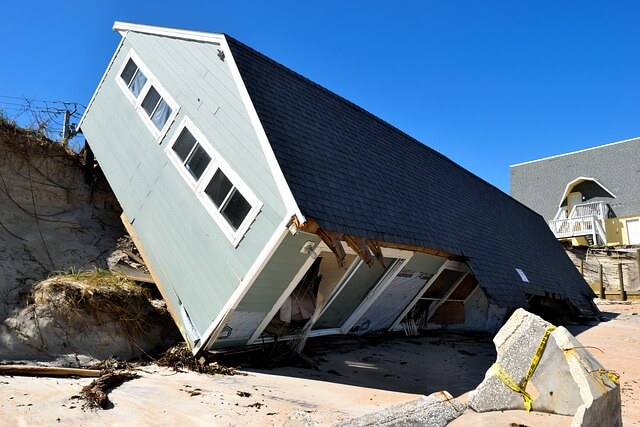| Source: FEMAFEMA provides two main types of assistance – Individual Assistance and Public Assistance – following major disasters such as hurricanes, tornadoes, straight-line winds, flooding and other incidents.
Individual Assistance
FEMA provides Individual Assistance to eligible individuals and households who have sustained losses as a direct result of a disaster that receives a federal disaster declaration.
· Homeowners and renters in officially designated counties who sustained damage to their homes, vehicles, personal property, businesses or inventory may apply for disaster assistance.
· Assistance can include grants to help pay for temporary housing, emergency home repairs, uninsured and underinsured personal property losses, and medical, dental and funeral expenses caused by the disaster, together with other serious disaster-related expenses.
· Disaster assistance grants are not taxable income and will not affect eligibility for Social Security, Medicaid, medical waiver programs, welfare assistance, Temporary Assistance for Needy Families, food stamps, Supplemental Security Income, Social Security Disability Insurance or any other federal benefits.
As a FEMA partner, the U.S. Small Business Administration (SBA) offers low-interest disaster loans to businesses of all sizes, nonprofits, homeowners and renters. SBA disaster loans are the primary source of federal long-term disaster recovery funds for disaster damages not fully covered by insurance or other compensation. They do not duplicate benefits of other agencies or organizations.
Public Assistance
Public Assistance can fund the repair, restoration, reconstruction or replacement of eligible public or certain nonprofit facilities or infrastructure damaged or destroyed by a disaster.
· FEMA will provide a reimbursement grant of at least 75% of eligible costs, with the state and local governments sharing the remaining 25%. Eligible public entities include state governments, local governments and any other political subdivision of the state, recognized tribes and U.S. territories. Certain private nonprofits such as schools, utility companies, irrigation systems, emergency, medical, and rehabilitation operations, houses of worship and temporary or permanent custodial-care facilities are potentially eligible to get assistance.
· Although funds are awarded to government entities and private nonprofits, the PA program is intended to benefit everyone in the affected community by helping to restore the community after a disaster.
What to expect after you apply for FEMA assistance
FEMA may be able to help with temporary housing expenses, basic home repairs or other essential disaster-related needs that are not covered by insurance. There are several ways to apply: Go online to DisasterAssistance.gov, use the FEMA app for smartphones or call 800-621-3362. If you use a relay service, such as video relay (VRS), captioned telephone or other service, give FEMA the number for that service.
FEMA will ask for:
· A current phone number where you can be contacted.
· Your address at the time of the disaster and the address where you are now staying.
· Your Social Security number.
· A general list of damage and losses.
· Banking information if you choose direct deposit.
· If insured, the policy number or the agent and/or the company name.
If you have homeowners, renters or flood insurance, you should file a claim as soon as possible. FEMA cannot duplicate benefits for losses covered by insurance. If your policy does not cover all your damage expenses, you may be eligible for federal assistance.
Home inspections
If you report that you cannot, or may not be able to, safely live in your home, FEMA may need to perform an inspection of the damaged dwelling. The inspection may be conducted at the site of the damaged dwelling or remotely. FEMA will contact you to let you know how the inspection will take place.
For remote inspections, FEMA inspectors will contact applicants to answer questions about the type and extent of damage sustained. Survivors with minimal damage who can live in their homes will not automatically be scheduled for a home inspection. However, they may request an inspection if they later find significant disaster-caused damage.
Remote inspections have no impact on the types of Other Needs Assistance available that do not require an inspection. This includes child care, transportation, medical and dental, funeral expenses, moving and storage, and Group Flood Insurance Policy Assistance.
Learn more at www.fema.gov |


